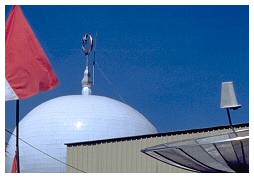 This is the first in a series comparing the social impact of theological differences between Christianity and Islam.
This is the first in a series comparing the social impact of theological differences between Christianity and Islam.
I believe that people become like what they worship, and people relate to one another based upon the way that they relate to God. If religions matter and if religions are different, then different civic structures will emerge from different religions. But popular culture resists information that challenges its prevailing conviction that all religions are basically the same. It sees what it expects, and it overlooks what it doesn’t.
Recent research shows that the religion of “no-religious-affiliation” is the fastest growing religious position in America. This group’s influence on popular thought throughout all of America is stunningly profound. If religion is irrelevant, then all religions are basically the same. And if all religions are basically the same, then different religions do not result in different civic structures, and civic structures become interchangeable between societies that are practicing different religions.
This emerging belief system impacts both secular and Christian institutions. On the secular side, it is the foundation for the failure of peacekeeping efforts in the Middle East and Central Asia. On the Christian side, it undergirds efforts to create a Jesus movement within Islam.
In this series, I will challenge conventional popular wisdom about religion. I will demonstrate that Islam and Christianity are fundamentally different. I will compare and contrast Muslim and Christian beliefs about God (theology), man (anthropology), nature (cosmology), salvation (soteriology), end-times (eschatology), and revelation. I will show how different beliefs result in different values that result in different social behaviors.
On the secular side, Western civic structures are founded in a Judeo-Christian religious heritage. Conversely, Middle Eastern and Central Asian civic structures are founded in a Muslim heritage. Civic structures cannot survive without underlying values that are based upon popular beliefs. Structure for government, justice, education, public works, civil defense, marriage, family, and more must have points of contact with underlying values. Structures functioning in one religious heritage cannot survive inside another without adapting so that they have points of contact in the values based on the beliefs of the other system. Such adaptation is not possible when the people attempting to transplant the structures believe that all religions are basically the same.
On the religious side, not everyone who professes to be a Christian is truly following Jesus and is “saved” according to an Evangelical perspective. Furthermore, some people who call themselves Muslims are actually or secretly following Jesus. As a result, many Evangelicals are embracing the popular notion that Muslims and Christians worship the same God. That leads to religious structures being interchangeable. It means that Muslims can follow Jesus and remain in Islam while Christians can worship in Mosques and celebrate Muslim holidays without committing idolatry. But if the Muslim and Christian gods are different, then worshipping in a Mosque would be idolatry for someone following Jesus, and worshipping in a church would be idolatry for someone following Muhammad.
Follow this series and then decide for yourself. Can Western civic structures bring peace and prosperity to the world of Islam? Can Muslims follow Jesus and remain inside Islam?
Link through the chart to other posts on the social impact of Muslim and Christian theology:








 Act Beyond
Act Beyond http://www.faithandwar.org
http://www.faithandwar.org Mark Durie's Blog
Mark Durie's Blog Military Missions Network
Military Missions Network The Christian Fighter Pilot
The Christian Fighter Pilot The Navy Christian
The Navy Christian